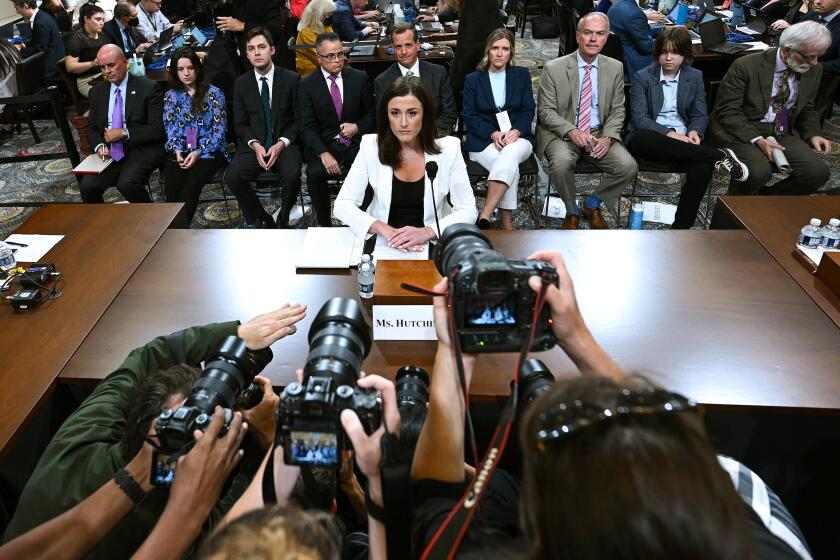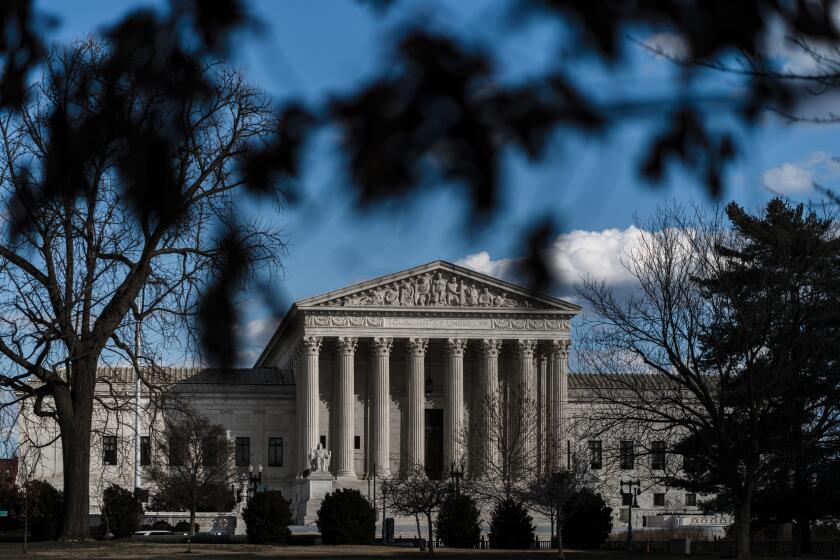Editorial: America, still independent, still free, still in jeopardy

- Share via
It can be sobering to remember that the day set aside to celebrate our nationhood commemorates a bloody breakup more than a happy union.
By declaration of Congress adopted on July 4, 1776, 13 British colonies already at war against their mother country proclaimed themselves not a new nation, but free and independent states. Associated, to be sure, even united, by mutual interests and linked backgrounds and destinies, but still wary of one another. Forging a single nation based on principles of justice and liberty would take not just Articles of Confederation, or the Constitution, but generations of struggle. Each new victory — emancipation, enfranchisement, equality, opportunity and more — became cemented in place by democratic institutions such as elections, the presidency, courts, statutes and constitutional amendments, and by a web of unspoken covenants among the American people to respect those instruments of democracy.
As we observe the 247th Independence Day, our faith in those institutions is severely shaken. We are witnessing congressional hearings that lay out in convincing detail a plot by the defeated president to cling to power past the end of his term by sowing distrust in the election system and urging on a mob that invaded the Capitol with the objective of blocking the ceremonial electoral count, preventing the election results from being adopted and perhaps even, in the minds of some participants, killing the vice president.
Cassidy Hutchinson revealed that White House officials knew about the risk of violence on Jan. 6 in the days prior to the insurrection.
We’re living with a Supreme Court whose membership was in part determined by what strikes us as partisan cheating, when the Senate leader denied a hearing on Barack Obama’s nominee but rushed through confirmation of Donald Trump’s nominee — just before Trump’s reelection defeat.
We are reading opinions from that court that strip away hard-won rights and liberties such as a woman’s right to end her pregnancy, and threaten other freedoms, including rights between consenting adults to intimacy and marriage.
We are watching the court block laws necessary for the public good, such as restrictions on the proliferation and presence of dangerous weapons on our streets and regulations of immediate and pressing importance, such as limits on the release of emissions into our air that are destroying the planet and jeopardizing life itself.
When Congress proves incapable of passing laws that protect us, but is barred by the courts from delegating that job to the president; when the president (to lift language from the Declaration of Independence’s bill of complaints against the king) “has excited domestic insurrections amongst us”; when people in his orbit feel free to commit crimes against democracy in the belief the president will pardon them; when the people don’t trust elections despite overwhelming evidence of their integrity, then democracy, and all the other institutions of liberty and justice are in peril.
The Supreme Court will hear a case about Republican lawmakers wanting to draw partisan election maps without interference from state high courts.
A half-century after the Revolution, a young Abraham Lincoln delivered a speech on “the perpetuation of our political institutions,” in which he warned that the same adventurous spirit that liberated the United States could also undermine it if it is not checked by a respect for the laws, precedents and covenants that protect human dignity and freedom. Beware, he said, those who have regarded government as their deadliest bane who now “make a jubilee of the suspension of its operations; and pray for nothing so much, as its total annihilation.” And watch out for the tendency of some to substitute wild and furious passions and savage mobs for the “sober judgment of Courts.”
Yet today we are vexed by both the passions of mobs and judgments of the court that fall well short of sober. We observe this Independence Day at a time when it can no longer be assured that our institutions will perpetuate themselves or that they, in the wrong hands, will serve us.
The time is long past when Americans need to declare themselves independent of a foreign power. The task today is to repair and if need be reconfigure damaged or weakened institutions such as the election system, the presidency and the courts. Taking on that work is an act of patriotism as important as the struggles of those many generations since 1776 that have sought to perfect this still-imperfect democracy.
More to Read
A cure for the common opinion
Get thought-provoking perspectives with our weekly newsletter.
You may occasionally receive promotional content from the Los Angeles Times.












